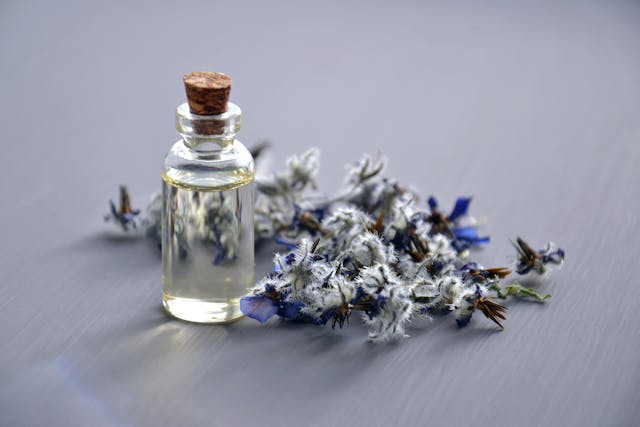
Essential oils, the concentrated, aromatic extracts of plants, have captivated humanity for centuries. From ancient Egyptians incorporating them into elaborate religious ceremonies to modern individuals utilizing them in soothing aromatherapy practices, these potent liquids hold a unique place in our pursuit of well-being. But beyond their captivating scents that can transport you to a lavender field in Provence or a citrus grove in Sicily, essential oils offer a wealth of potential benefits, from promoting relaxation and reducing stress to enhancing skin health and even supporting respiratory function. However, navigating the world of essential oils can be daunting, especially for those unfamiliar with their diverse properties and applications. This comprehensive guide aims to demystify the use of essential oils, equipping you with the knowledge to explore their potential and safely integrate them into your life, allowing you to harness the power of nature to cultivate a sense of calm, enhance your well-being, and unlock a world of aromatic possibilities.
Power of Essential Oils
Essential oils are extracted from various plant parts like flowers, leaves, seeds, and even bark and roots, using methods like steam distillation or cold pressing. These meticulous processes capture the plant’s “essence,” concentrating the volatile aromatic compounds responsible for the characteristic scent and potential therapeutic effects. Each chosen plant part undergoes a specific extraction method optimized for its unique composition, ensuring the highest quality and potency is captured in the final essential oil. The resulting liquid is a complex blend of hundreds of different chemical compounds, each contributing to the oil’s distinct aroma and potential benefits. Understanding the intricacies of the extraction process and the resulting chemical composition is crucial for appreciating the power and complexity of essential oils.
How They Work
While the exact ways essential oils interact with our bodies are still under investigation, current research suggests several intriguing possibilities:
1. Aromatherapy: When inhaled, the aromatic molecules of essential oils travel through the olfactory system, the intricate network responsible for our sense of smell. These molecules stimulate olfactory receptors in the nose, sending signals to the brain’s limbic system, the emotional center. This interaction can trigger various responses, influencing mood, promoting relaxation, or even alleviating headaches, depending on the specific oil and its unique chemical composition.
2. Topical Application: When diluted and applied topically to the skin, the components of essential oils may be absorbed through the skin’s layers. These absorbed molecules can interact with local tissues and cells, potentially offering localized benefits. For example, some essential oils possess anti-inflammatory properties, which may help reduce inflammation when applied directly to affected areas. Additionally, some oils exhibit wound healing properties, potentially supporting the healing process when applied topically to minor wounds (always under the guidance of a qualified healthcare professional).
Exploring the Benefits
While essential oils are not a replacement for conventional medical care and should always be used with caution, they offer a diverse range of potential benefits that can complement your well-being journey. Here’s a closer look at some of these potential benefits, backed by existing research:
1. Relaxation and Stress Reduction:
Lavender oil: Renowned for its calming aroma, lavender oil is widely used to promote relaxation and reduce stress. Studies suggest it may improve sleep quality and alleviate anxiety symptoms, making it a valuable tool for unwinding after a long day or managing occasional anxiety.
2. Pain Relief:
Peppermint oil: This oil’s characteristic cooling sensation makes it a popular choice for topical application to relieve muscle aches and headaches. Research suggests its topical application may offer pain management benefits, providing a natural approach to managing discomfort.
3. Skin Health:
Tea tree oil: Known for its antiseptic properties, tea tree oil may be used topically to support healthy skin. Studies indicate its potential benefits in managing acne and other skin concerns, offering a natural alternative for those seeking to improve their skin health.
4. Respiratory Support:
Eucalyptus oil: With its decongestant properties, eucalyptus oil may be helpful in clearing nasal passages and easing respiratory discomfort. Research suggests it may offer benefits in managing symptoms of the common cold and flu, providing natural support for your respiratory system.
5. Mood Enhancement:
Citrus essential oils: These oils, like lemon and grapefruit, are known for their uplifting and energizing aromas. Studies suggest they may positively impact mood and reduce symptoms of depression, offering a natural way to boost your spirits and combat feelings of low mood.
Essential Oil Safety
While essential oils are generally safe when used appropriately, it’s crucial to exercise caution:
- Never ingest essential oils: They are highly concentrated and can be toxic if swallowed.
- Always dilute: Essential oils are potent and can irritate the skin when used undiluted. Dilute them in carrier oils like almond oil or jojoba oil before topical application.
- Perform a patch test: Before applying any essential oil to a larger area, test it on a small area of your skin to check for any allergic reactions.
- Consult healthcare professionals: If you have any pre-existing medical conditions or are pregnant or breastfeeding, consult your healthcare professional before using essential oils.
Integrating Essential Oils into Your Life
There are various ways to incorporate essential oils into your daily routine:
- Diffusers: Diffusing essential oils into the air allows you to enjoy their aromas and experience their potential benefits.
- Bath and Shower: Add a few drops of diluted essential oil to your bath or shower water for a relaxing or invigorating experience.
- Topical Application: Dilute essential oils and apply them topically to specific areas of the skin for targeted benefits. Remember, always consult a healthcare professional before using essential oils directly on your skin.
- DIY Projects: You can use essential oils to create homemade cleaning products, potpourri, or even DIY skincare products (with proper research and guidance from qualified professionals).



